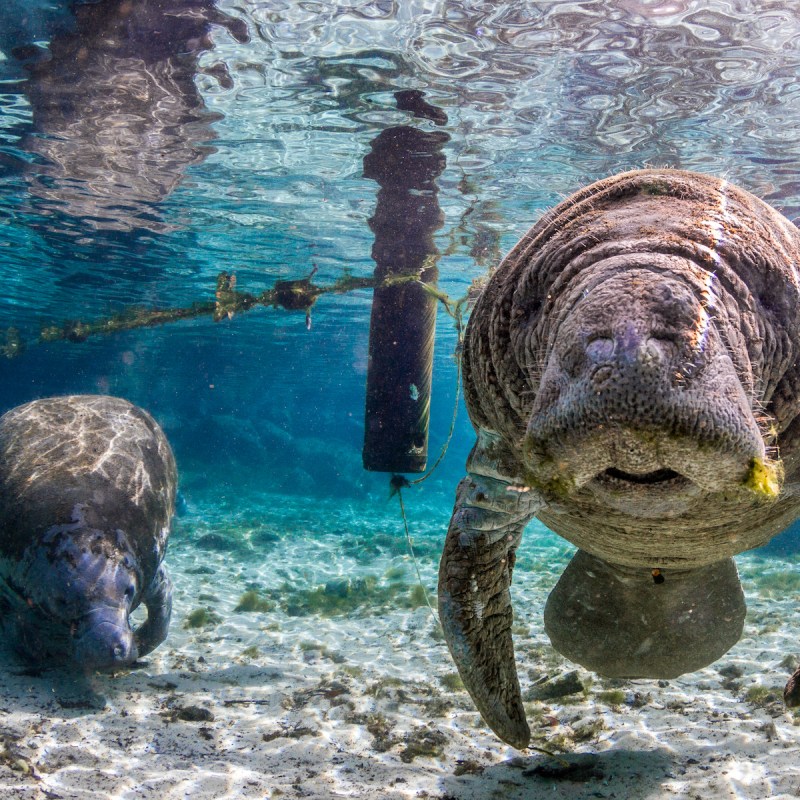
A Florida sheriff’s office has a unique message for the county’s concerned residents:
Videos by TravelAwaits
“If you see [manatees], no you didn’t,” the Pinellas County Sheriff’s Office in Largo, Florida, about 20 miles from Tampa, wrote in a Facebook post accompanied by Marvin Gaye singing Let’s Get It On. “We get calls all the time from citizens when they see this, believing the manatees are in distress. We can assure you they are more than fine.”
What’s happening is that the manatees have formed a mating herd consisting of one cow and several bulls. Their group sex in shallow water involves considerable flopping and splashing.
“When people see it, it is in shallow waters with a lot of commotion, so it can look like manatees are getting injured to onlookers who are definitely fearful and want to make sure manatees are doing ok,” said Jaime Vaccaro, assistant curator of Florida/manatees with Zoo Tampa, according to WFLA NBC8. “There’s usually one female and multiple males. You could see anywhere from five or more manatees together at one time.”
Although manatees breed throughout the year, mating herd activity is generally seen in the summer, which explains why concerned citizens have been calling the sheriff’s office.
“If you see this, there’s no need to call,” the sheriff’s office continued. “They are a-okay!”
Florida’s Manatees
Florida manatees, which are Florida’s state marine mammal, are native to Florida and have lived there for millions of years, according to the Florida Fish and Wildlife Conservation Commission.
Adult manatees are typically around 10 feet long and weigh around 1,000 pounds. A manatee calf typically weighs 60–70 pounds at birth.
The marine mammals, also known as “sea cows,” prefer calm rivers, estuaries, bays, and canals around coastal Florida. Then, in the winter, the manatees migrate to the warmer waters found near power-plant discharge areas or natural warm-water springs.
They get their “sea cows” nickname because they are herbivores and generally spend up to 8 hours a day grazing on seagrasses and other marine or freshwater vegetation.
What To Know
Importantly, since manatees are protected by the Marine Mammal Protection Act of 1972, the Endangered Species Act of 1973, and the Florida Manatee Sanctuary Act of 1978, it is illegal to feed, harass, harm, pursue, hunt, shoot, wound, kill, annoy, or molest the manatees, the Florida Fish and Wildlife Conservation Commission explains.
That means touching or disturbing the manatees, including approaching them and disturbing the mating process, is illegal, the Pinellas County Sheriff’s Office notes.
Anyone convicted of violating Florida state law faces maximum fines of $500 and/or imprisonment of up to 60 days. On the other hand, conviction for violating federal protection laws is punishable by fines up to $100,000 and/or 1 year in prison.
Be sure to also read our Wildlife content, including:
